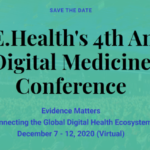Melanoma, the deadliest form of skin cancer, is on the rise in women of child-bearing age. Those at the greatest risk, according to new Cleveland Clinic research, are women younger than 50 who are pregnant or have recently been pregnant.
Researchers from Cleveland Clinic’s Dermatology & Plastic Surgery Institute discovered that women diagnosed with malignant melanoma during their pregnancy or within one year of giving birth were 5.1-times as likely to die, 6.9-times as likely to experience metastasis, and 9.2-times more likely to have a recurrence.
The researchers believe pregnancy hormones may fuel the cancer.
The case-control study, published online today in of the Journal of the American Academy of Dermatology, used a large clinical database of electronic medical records to collect detailed data of melanomas developing in 462 women aged 49 years or younger.
“We saw significant, worse prognoses and outcomes for women with a pregnancy-associated melanoma, compared to a control group of non-pregnant women,” said Brian Gastman, M.D., a plastic surgeon, director of melanoma surgery at Cleveland Clinic, and primary investigator on the study.
“The rate of metastasis, recurrence and death in our findings were astounding — as the rates were measurably higher in women who were diagnosed with melanoma while pregnant, or within one year after delivery,” Dr. Gastman added.
The study is a stark reminder of the importance of skin cancer prevention. The rates of melanoma have been rising for at least 30 years, and rates in the United States have doubled from 1982 to 2011.
According to the authors, women below 50, particularly those who are pregnant and at higher risk of developing melanoma, should be extra-vigilant in monitoring changing skin lesions and maintaining diligent dermatological follow up.
Ultraviolet radiation from the sun and artificial sources is the most preventable risk factor for all forms of skin cancer, including melanoma.
To protect the skin from harmful UV rays, the American Academy of Dermatology recommends seeking shade, wearing protective clothing and using a broad-spectrum, water-resistant sunscreen with an SPF of 30 or higher.
The AAD also advises the public to steer clear of tanning beds, a source of artificial UV radiation that increases the risk of melanoma, especially in women 45 and younger.
































